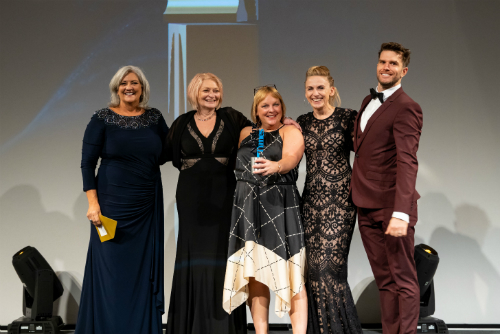Local healthcare practitioners team up to win prestigious nursing award
Trinity Hospice & Palliative Care Services has teamed up with Clifton Hospital, part of the Blackpool Teaching Hospitals NHS Foundation Trust, to develop a remote working programme for nurses and health care practitioners, enabling them to reach more patients – which has gone on to win them an award from the Nursing Times.
The collaboration focused on ‘Remote End of Life Care’, utilising technology effectively in order to serve patients in their own homes by speaking to them via tablets. Pilot campaigns initially ran at various nursing homes and Clifton Hospital itself, focused over a 13 month period.
Those involved in the initiative included Sarah Roberts, Trinity Hospice, Helena Palin, Clifton Hospital, and then members of the Digital Health Team at Blackpool Teaching Hospitals, Veronica Southern, Bryan Trench, and Katie Selby.
This collaboration resulted in a joint award from the Nursing Times for ‘Technology and Data in Nursing’ and was presented at their annual ceremony, held at the Grosvenor House Hotel, London.
Clinical Nurse Specialist Manager at Trinity Hospice, Sarah Roberts, said: “We saved a total of £21,000 by linking in with these areas virtually by video, instead of travelling.
“Patients who have been part of the process have not had any negative comments and have enjoyed the experience. Our main priority is to ensure patients have the best quality of life. Most don’t want to wait in all day for a nurse to call, so we’re providing patients with that choice on how they want to be contacted.”
Over 800 hours of clinical time has also been released within the community teams, meaning more patients can now be contacted.
Trinity Hospice has continued with the initiative, with ongoing ‘Virtual Clinics’ within the community. Sarah went on to say: “We need to ensure that our patients are given a choice, not only about the service they receive, but also the way they receive it.
“For us, it means we can see more patients in a day because we are not spending time on the road. For 14 months since launching a pioneering trial of our virtual clinics, we’ve been able to work remotely – and work smarter for our patients.”


